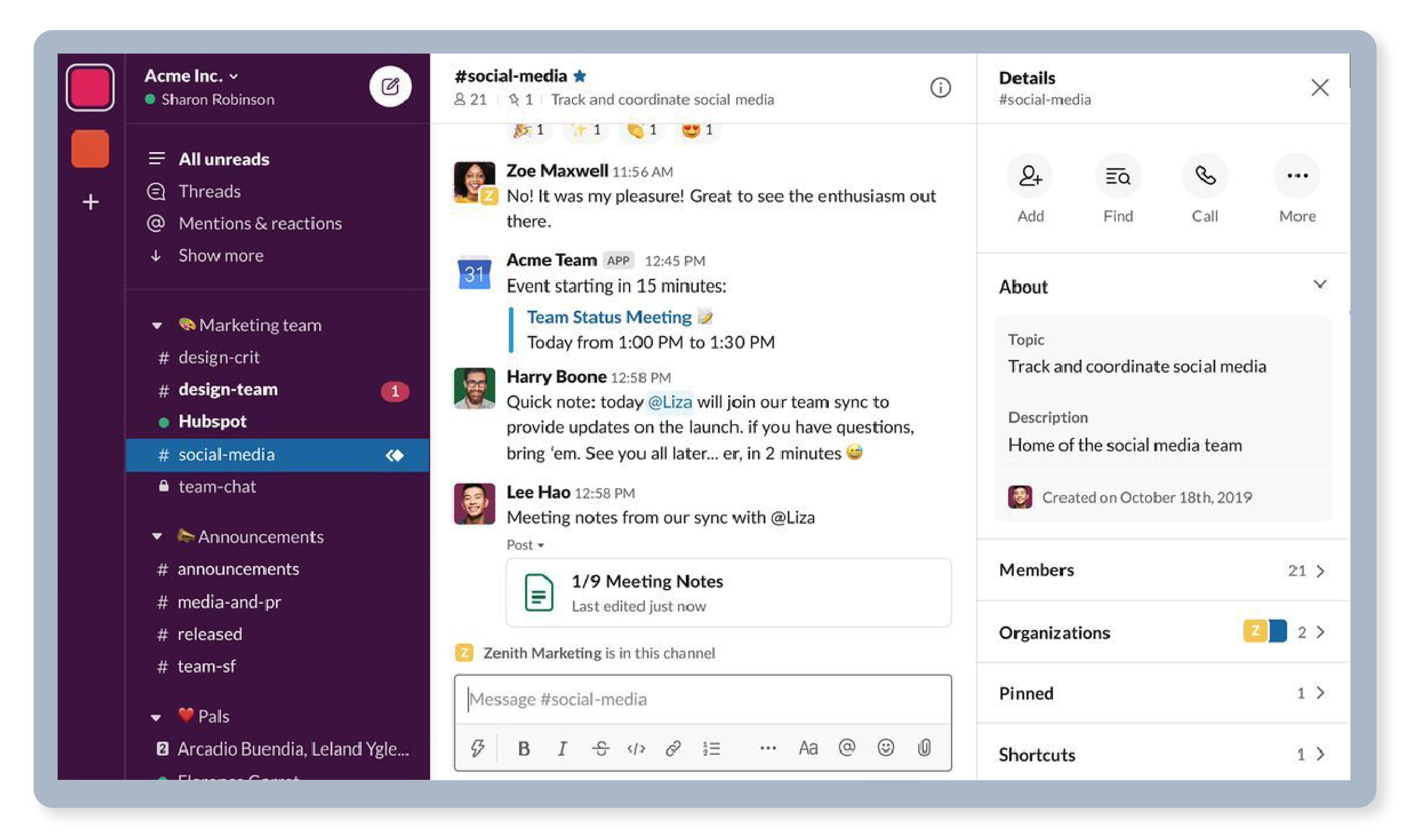Digital marketing has exploded with the growth of technology and the digital revolution. Marketing has moved from classic print and direct messaging to digital campaigns designed to boost web performance, increase visibility, encourage engagement, and build authority. The focus has now shifted to anything that drives quality website traffic and increases brand awareness.
What is a Digital Marketers Tech Stack?
A digital marketing tech stack is the collection of tools that marketers use to drive their marketing activities both internally and externally. These tools vary greatly, with systems available to assist at every stage of the customer journey.
Although this industry had been consistently growing, with “martech” now estimated to be worth around $344.8bn globally, the pandemic has resulted in marketing teams becoming more focused on streamlining their tech stack largely due to budget restraints. It was recently reported that on average only 58% of marketing technologies were actually being used by teams and therefore wasting a huge amount of company resources.
This is a common problem across all industries so, to help you streamline your marketing tech stack we have pulled together a list of the tools you should have, along with a selection of the most popular providers.
CMS (Content Management System)
A CMS (Content Management System) is an easy way for marketers to manage their website without any coding or development experience. Content can be created, published and scheduled on a user-friendly platform making it ideal for marketing teams to build high-quality and manageable sites quickly.
The capabilities of a CMS platform will largely depend on the provider you choose, however in most cases you can download a website template that can be customised with your branding and assets without the need for any complicated development work. There’s no denying these tools are incredibly popular, with over 73 million websites worldwide using a CMS, whether for the main site, blog or even an online store.
HubSpot
Although offering a huge level of functionality across sales, support and marketing, HubSpot also operates as a CMS that is perfectly tailored to marketers.
HubSpot has always been popular with marketers due to its usability, allowing teams to quickly build eye-catching landing pages and blogs with zero fuss. All HubSpot’s features are integrated into a single system creating a direct connection between a business's website and many other areas of its operation.
Rather than relying on tricky integrations, HubSpot makes it simple to create web pages to capture user details. These details can then be automatically filtered into a sales pipeline creating one seamless customer journey.
Although there are a number of popular CMS tools on the market, HubSpot is a standout for marketers with advanced SEO capabilities, integrated call-to-actions, and custom workflows, alongside other unique features.
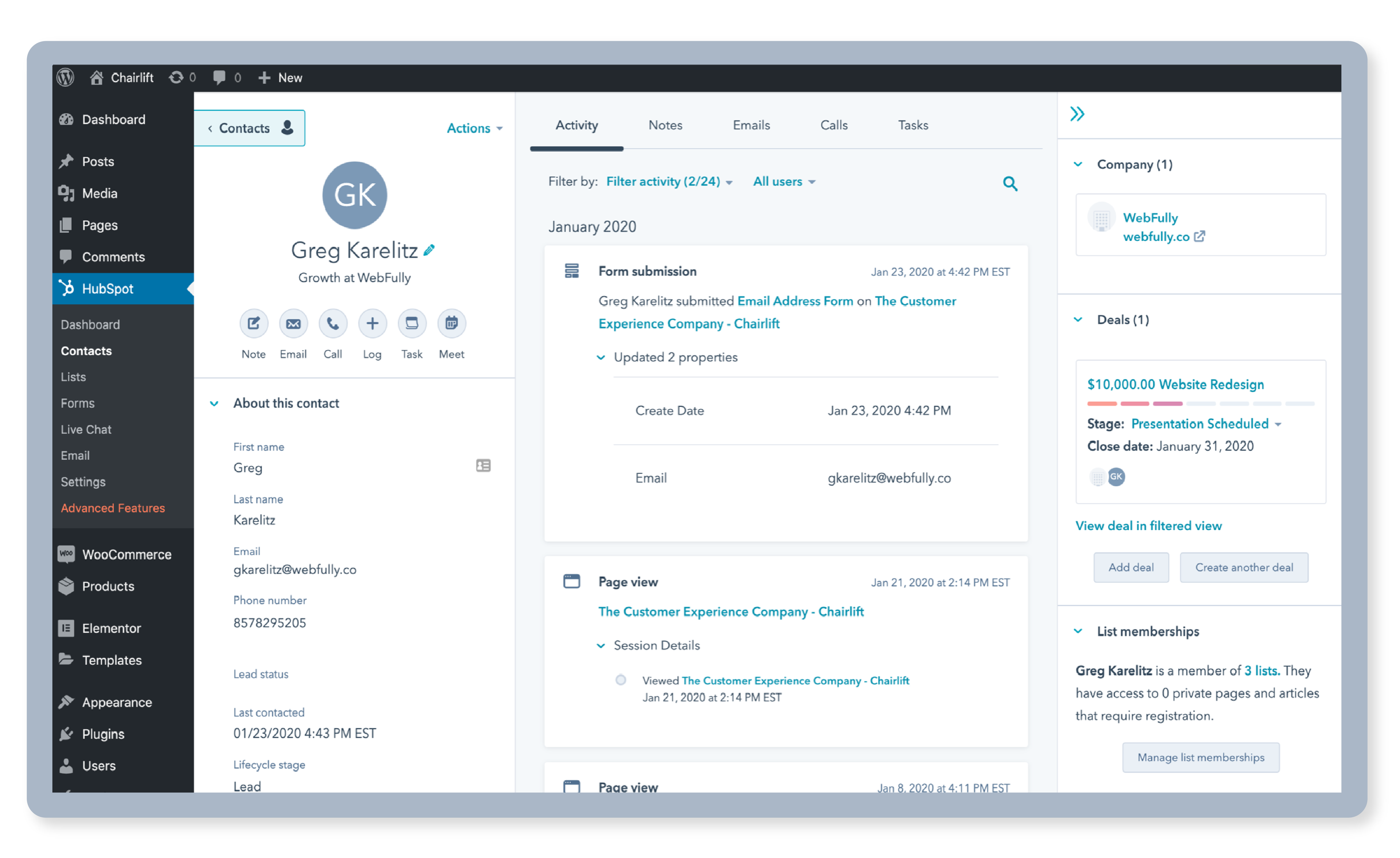
Content Scheduling Tool
A scheduling tool makes it simple to plan content and ensure it’s delivered as smoothly as possible. Particularly with social media which is “always-on”, having an individual employee responsible for hitting send on each post is a waste of company time and unreliable as you scale.
A scheduling tool allows marketers to schedule their content in bulk and ahead of time which not only saves time but, ensures you have a consistent stream of content being shared across your follower’s feeds.
Buffer
Buffer, specifically designed for small businesses, offers a simple tool to schedule posts across all the most used social media platforms.
Using Buffer you can organise your scheduling calendar and also delve into your audience insights to understand what they engage with most and at what time. This allows you to fully optimise your posting schedule and drive increased engagement.
Unlike other scheduling tools, Buffer remains simple, focusing solely on scheduling and reports. This makes it ideal for teams searching for an easy and affordable way to manage their social media without complicated additional features that usually come at an increased cost.
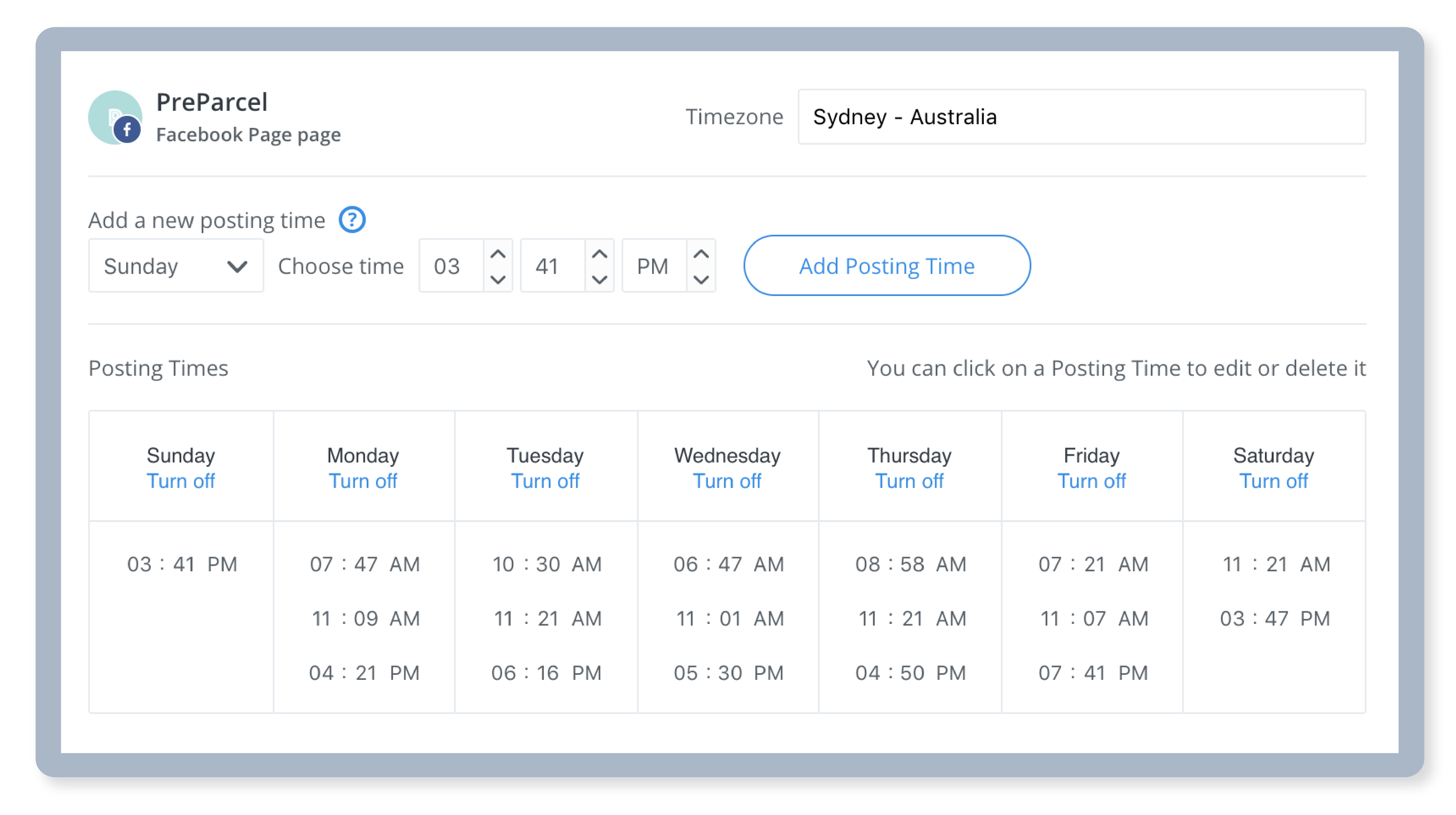
CoSchedule
CoSchedule goes a step further than other scheduling tools, tackling all areas of content marketing, as well as social media. In the same realm as other tools, CoShedule enables users to create their calendar, adding pieces of content to be shared throughout the week, tracking these in one simple space.
On top of social media posts however, CoSchedule allows marketers to manage their entire content calendar with the ability to schedule email content, landing pages and website updates in one simple calendar view.
Evolving into an all in one solution, aside from its scheduling tool, CoSchedule has other useful project management features making it easy for teams to track and publish content in one integrated space.
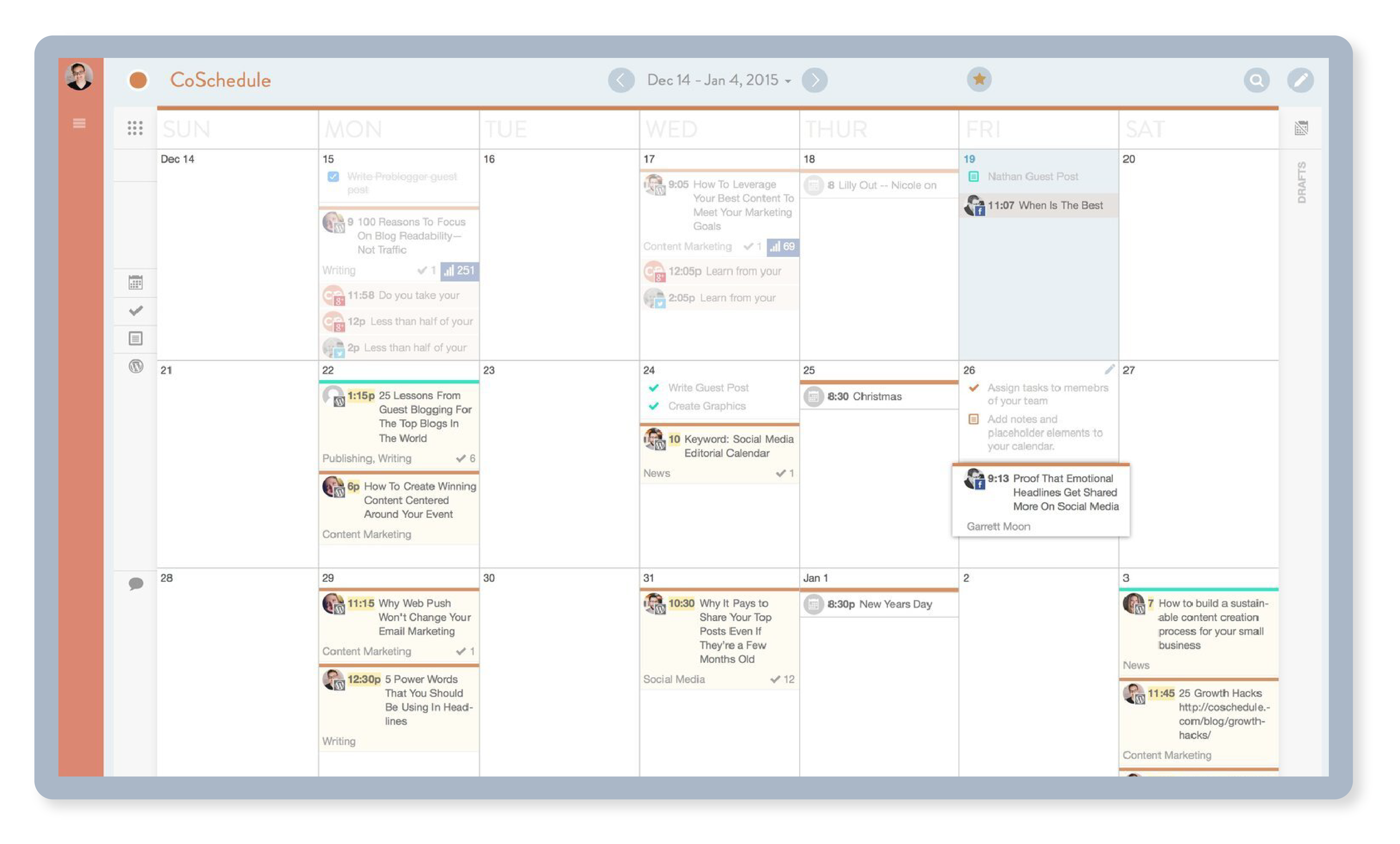
Internal Communications
Although focused on customer engagement and building brand awareness, marketers need a way to quickly communicate internally and collaborate on projects.
Although emails have dominated business communication for decades they can often be slow with useful information becoming lost in threads. To keep campaigns moving and ensure everyone in the team is aligned, internal communication tools have become an essential part of a marketer’s tech stack.
Slack
Slack has taken team communication by storm, credited as the fastest growing start-up in history, used in over 600,000 companies worldwide with over 10 million active users.
Slack is an instant messaging platform that makes it easy for teams to chat, share files and work together keeping all information together and organised in one space. Teams can create specific channels, chat privately or speak with external clients in one simple space.
Even better, Slack is not limited to one specific platform meaning it can be used across a variety of teams, departments and even external clients regardless of what system they use e.g. Apple, Microsoft, etc.
SEO Tool
A big focus for digital marketers is SEO (Search Engine Optimisation), which helps ensure that both their website and content are ranking highly on search engines and driving quality organic traffic.
To manage, monitor and build strategic campaigns, marketers will rely on SEO tools. SEO tools provide context and data about the overall health of your website, offering recommendations on how to improve and optimise your content.
SEO is a vast area within digital marketing, so it only makes sense that the tools used to manage this will be multi-functional. In most cases, marketers rely on an SEO tool with features to track keywords across their site, run competitor comparisons, and schedule content audits to identify and leverage any potential gaps in their offering. It's also important to keep a close eye on any website incidents to ensure your website is running smoothly without any issues.
Semrush
Semrush is recognised as one of the most dominant SEO tools on the market with advanced capabilities, offering an all-in-one suite for “improving online visibility and discovering marketing insights”.
The major benefit of Semrush over other tools is its impressive list of features, boasting over 55 products, tools and add-ons, therefore acting as users' one-stop shop for all things web management. More than just a keyword tool, Semrush gives teams the ability to strategically plan content and better understand their online presence.
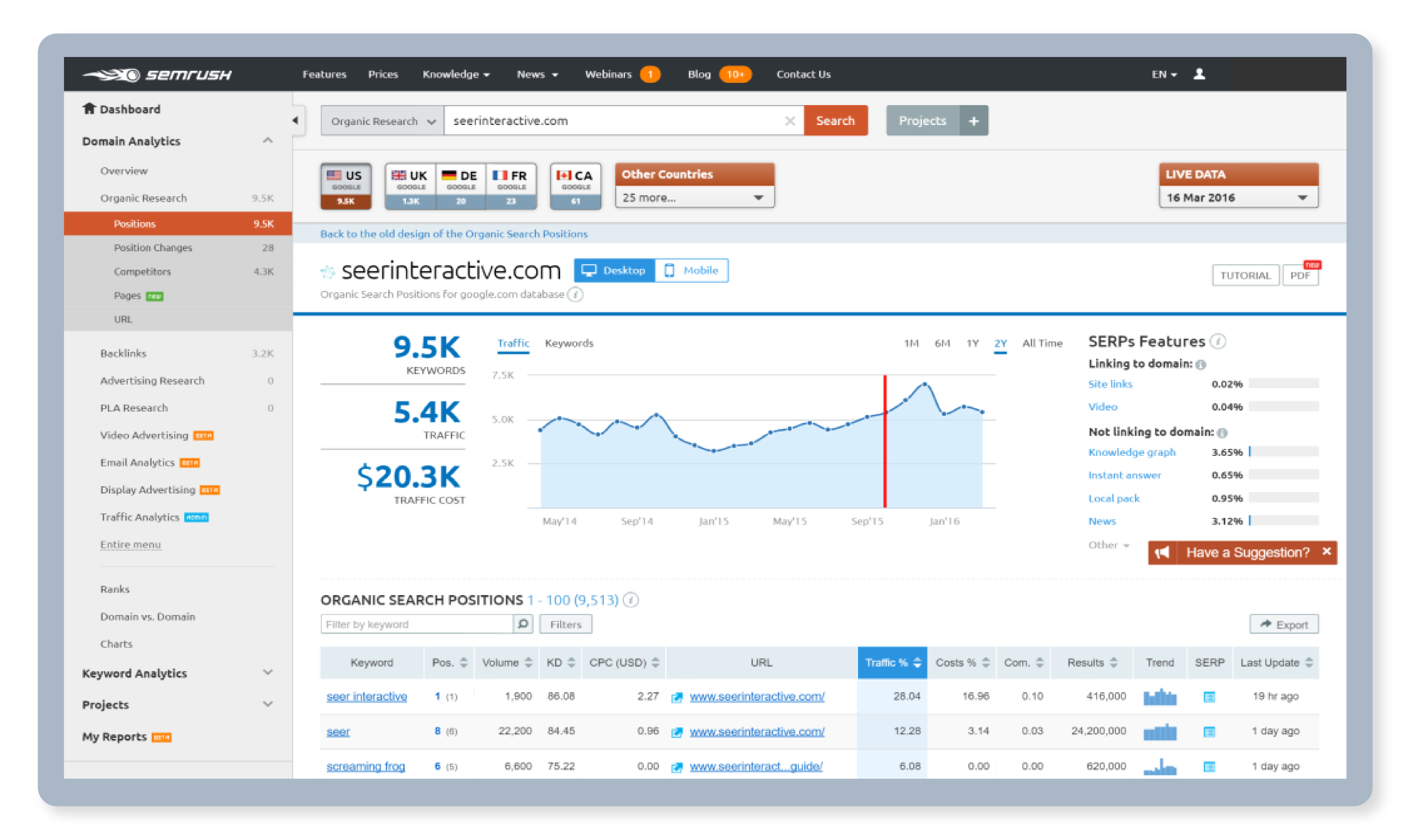
Ahrefs
Ahrefs is another popular SEO tool, designed specifically for marketing professionals, helping them score higher in their search ranking.
Their suite of tools offers functionality for keyword research, competitor analysis, link building rank tracking, site audits and more. Alongside Semrush, Ahrefs is considered one of the most popular SEO tools, due to its advanced functionality, enabling marketers to have a complete view of their web performance in one simple space.
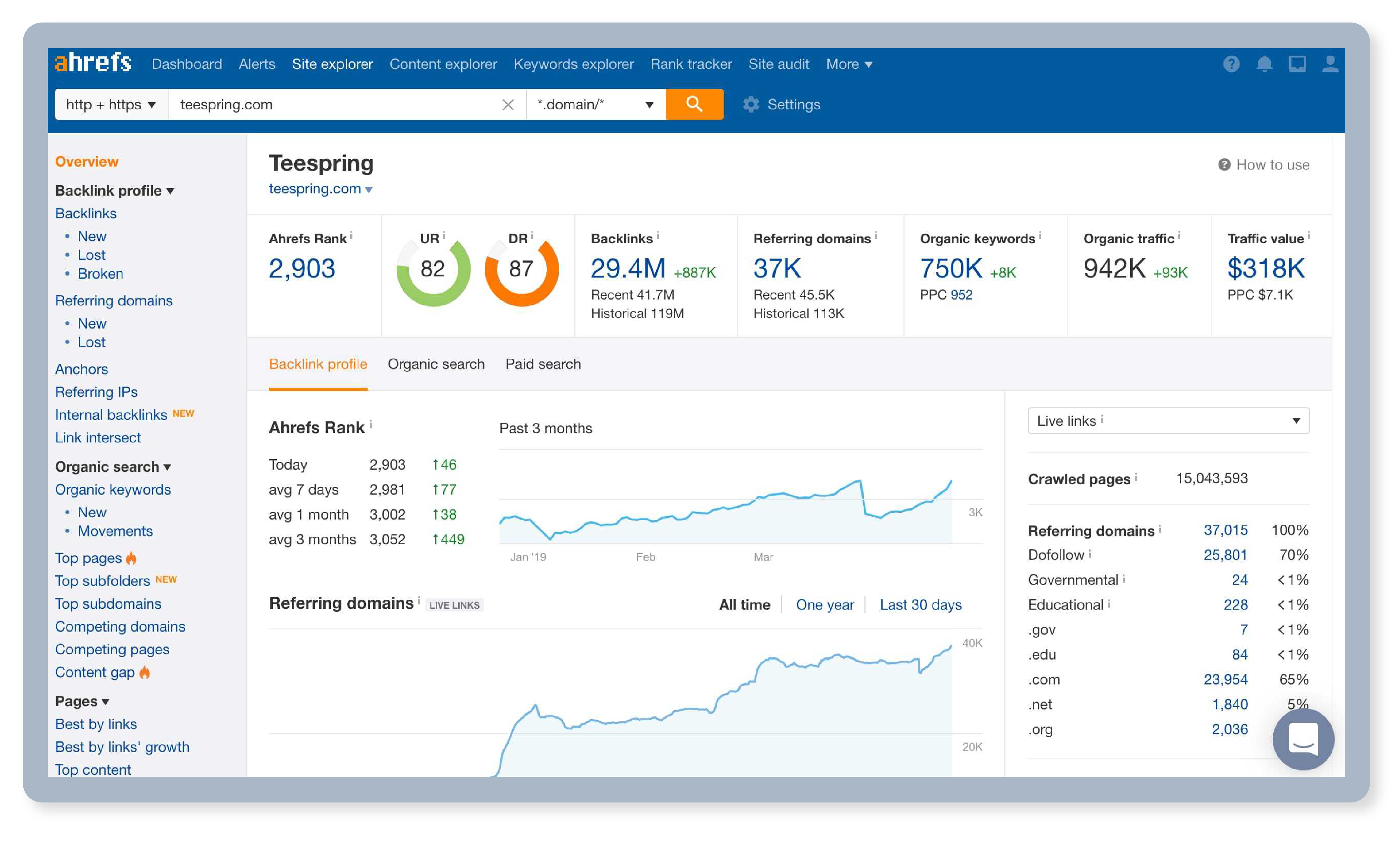
Google Keyword Planner
Unlike other keyword tools, Google Keyword Planner is free forever, allowing teams to recognise content gaps and opportunities as well as analyse search volume.
Google Keyword Planner doesn’t offer the same level of technical functionality as other SEO tools but is perfect for teams who are searching for a simple way to conduct keyword research without maxing out their marketing budget.
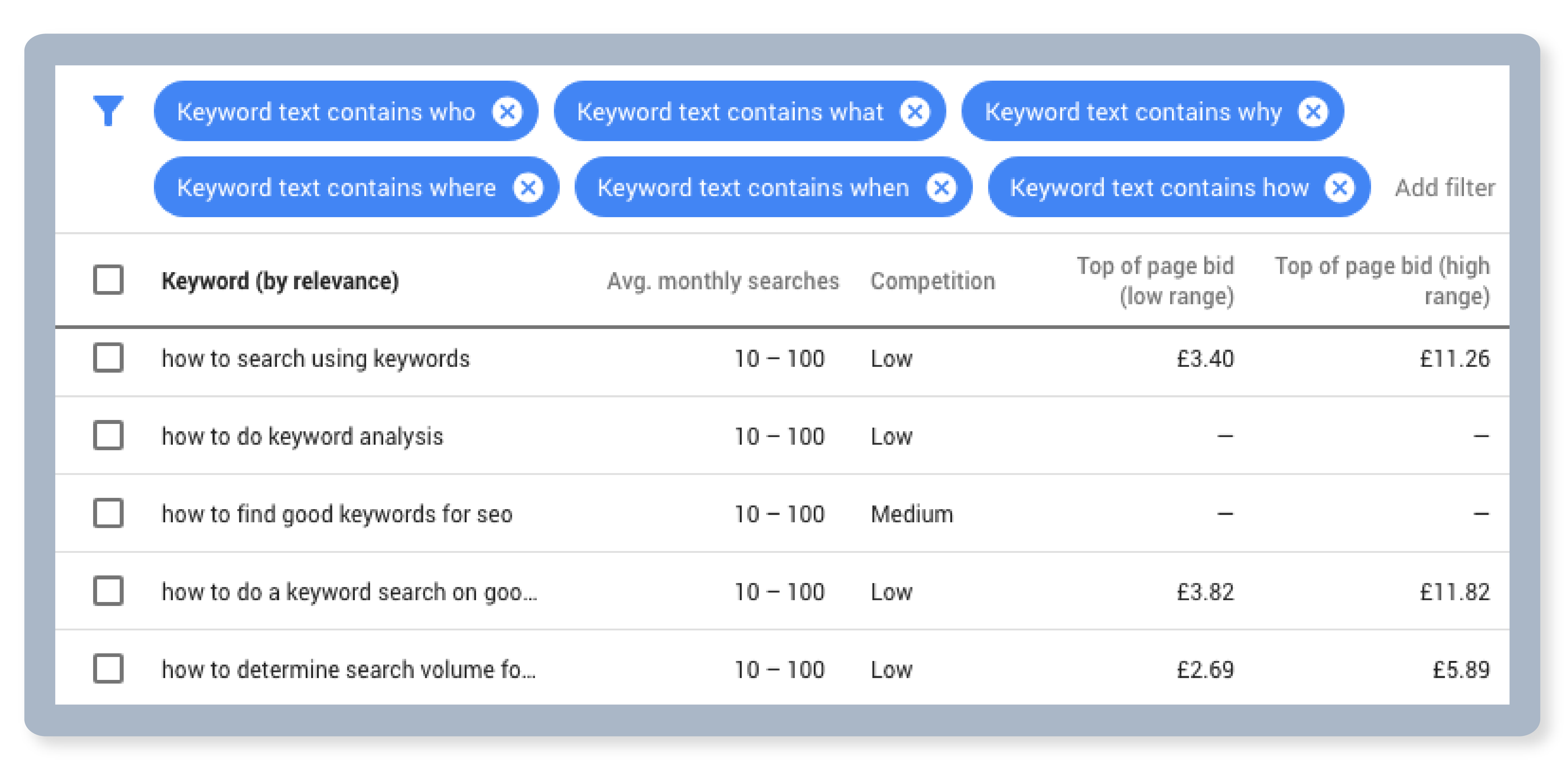
Reporting Dashboard
Digital marketers are juggling a variety of tools to manage, track and optimise all their activities. This often becomes overwhelming when it comes to building reports and understanding the overall success of campaigns.
Not having access to the right data prevents marketers from making strategic decisions and understanding what has, or has not, been effective. Without complete visibility, more time is spent actually hunting for information than using it to drive campaigns forward. Therefore having a dynamic reporting tool that is constantly working in the background to pull in relevant data from across their tools is vital.
Hurree
In recent years, dashboards have become the most popular reporting tool used by marketers, being the easiest, and most visual way to track performance.
Although there are different dashboard tools on the market, Hurree delivers simplicity, making it effortless for marketers to connect their favourite tools, track their most valuable metrics and set up performance indicators to get an at-a-glance understanding of how certain metrics are achieving their goals.
As mentioned, the difficulty marketing teams face is information overload, so having an overly complicated reporting tool is counterproductive. Within a few clicks, you can connect to your tools, choose the metrics you want to track and, have your tailored dashboard set up in minutes. These are also dynamic, so although they can be easily edited, the data contained in your dashboards is constantly refreshing, ensuring you are only working with the most up-to-date information.
The best part? There's absolutely no developer effort needed, with no tricky tracking codes or backend work. Any marketer, no matter their experience, can set up their dashboards and start tracking their most valuable metrics instantly.
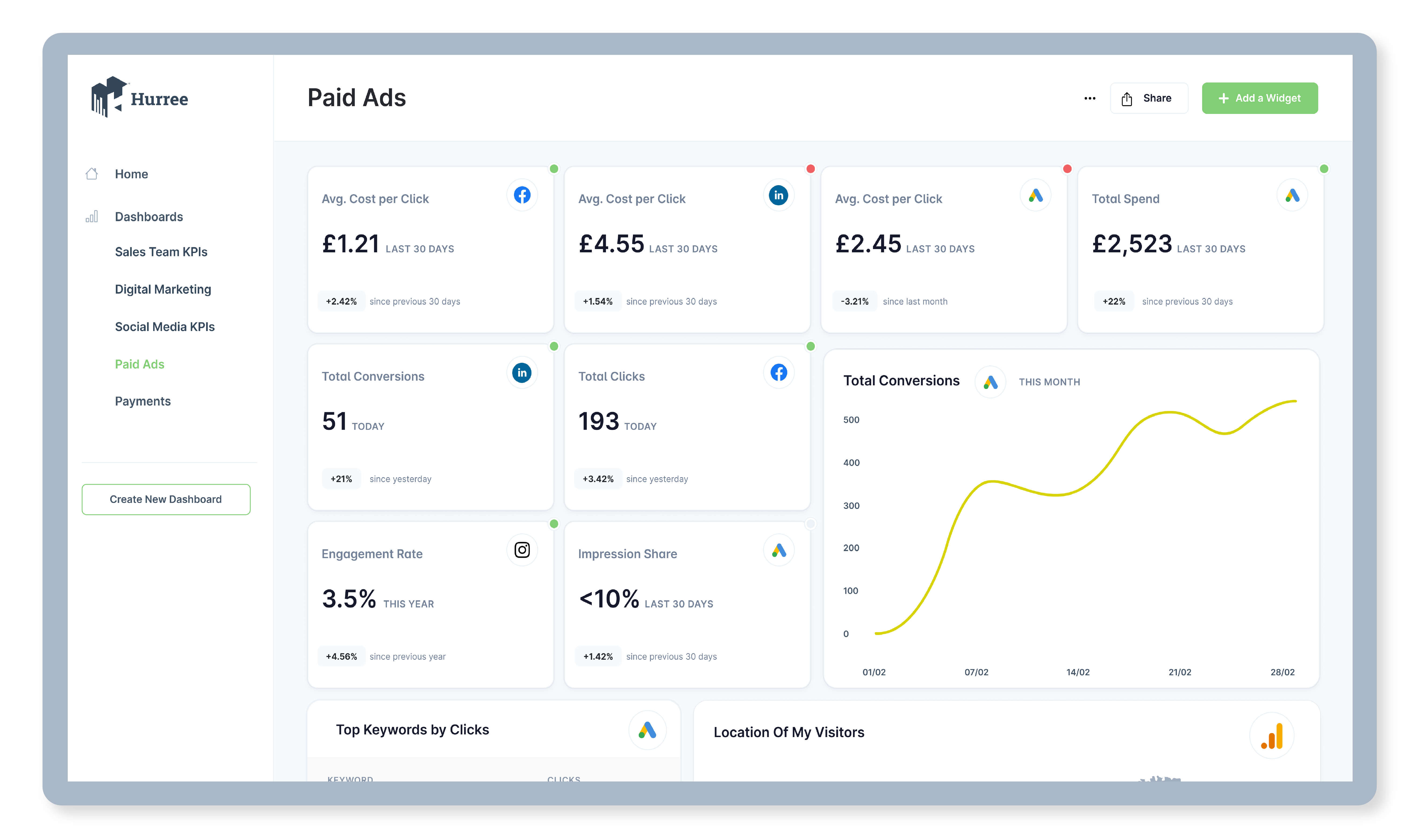
Conclusion
It’s clear digital marketers are managing a comprehensive tech stack with new tools cropping up every day. Arguably, the most important tool however is a reporting dashboard, acting as a way to pull together all your most insightful data in one simple space.
Without such a tool information can be easily lost in data silos, key opportunities are missed and certain aspects of your tech stack quickly become ineffective. A dashboard tool like Hurree will effortlessly pull all your tools together with zero fuss.
Still not convinced? Why not try out Hurree completely free on your 7-day trial to discover how you can bring simple visibility to your digital marketing activities.
Share this
You May Also Like
These Related Stories

[Guide] A Marketer's Guide to Building a Brand in 2020

[Infographic] What's The Difference Between CX, UX, and HX?

